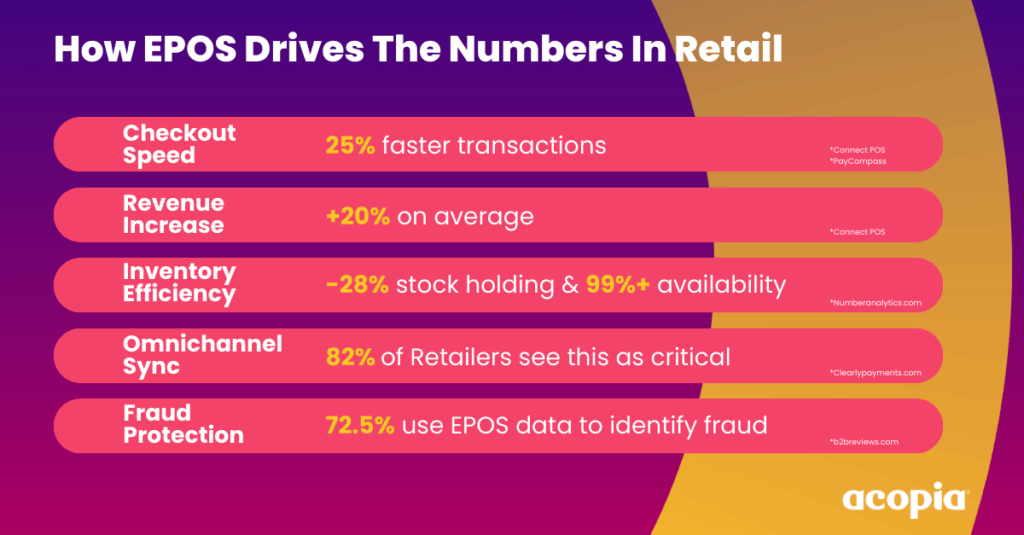
Whether you're in retail, hospitality, or omnichannel sales, an Electronic Point of Sale (EPOS) system is more than just a digital cash register. It’s a powerful suite of tools that drives efficiencies, insights, and customer experience.
These systems are designed to streamline transactions, helping stores to manage stock and provide valuable insights into sales performance.
According to recent findings, 28% of UK merchants still rely on outdated or legacy POS systems, These often lack modern payment methods like digital wallets or QR code acceptance.
🗣 What Industry Experts Say
Industry commentators highlight how outdated POS systems are costing retailers billions in lost sales due to queue fatigue and lack of modern payment methods
In this expert recap, we will delve further into components, benefits, and impact on businesses.
EPOS systems integrate hardware (touchscreens, scanners,printers) with software that manages a store’s sales, tracks inventory, customer returns, and CRM. They’re no longer just transaction devices; they have become mini operational hubs.
EPOS solutions cover a number of functions that are scalable and highly customisable for
An EPOS system typically consists of several key components:

Retailers using EPOS systems typically see a 20% increase in revenue, thanks to 25% faster till transactions, less errors, and smarter stock management.
Stores leveraging EPOS analytics reduce excess inventory by 28% while maintaining >99% stock availability. This translates into better cash flow and fewer lost sales, helping to streamline the whole Goods For Resale operation, resulting in a well organised stock room, minimising out of stocks.
EPOS systems provide rich data for pricing, promotions, and demand forecasting. Companies using EPOS analytics can see up to 14.5% improvements in profit margins through dynamic pricing optimisation with 83% of retailers viewing customer and operational data as essential for long-term success.
SPOTLIGHT ON CHARITY RETAIL
When it comes to Charity Retail, EPOS supports in driving extra income for stores.
With Charity Shops relying on the income from every sale, an EPOS system makes a huge difference to profitability, providing extra revenue for their causes.

EPOS systems help prevent fraud through real-time data mining, using artificial intelligence to spot unusual transactions and spending patterns. As it continues to learn, trends and anomalies will be spotted and analysed. Automated alerts can be sent where fraud is suspected. In this way, businesses can pre-emptively prevent fraud and heighten their security.
EPOS systems rely on a range of consumables to operate and essentially produce a range of “paperwork”. Working with a trusted supplier who has industry knowledge of EPOS systems and experience of the consumables required is key to an efficient instore operation.
Final EPOS Takeaway
As technology continues to evolve, the capabilities of EPOS systems will expand, offering even more powerful tools for business management providing real time insights, fraud protection and better customer experience.
🗣 Industry Comment
“In today’s fast‑paced retail environment, the buzzwords ‘big data’ and ‘AI’ are not just jargon - they’re game‑changers. And when you mix in the capabilities of modern Electronic Point of Sale (EPOS) systems, you get a powerful trifecta that’s reshaping the retail landscape.” Edward Nick, in “The intersection of big data, AI, and EPOS: A new era of retail intelligence.”
Find out more about the range of EPOS consumables we provide for Retail, Charity Retail and Hospitality by sending a quick email to [email protected]